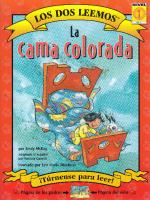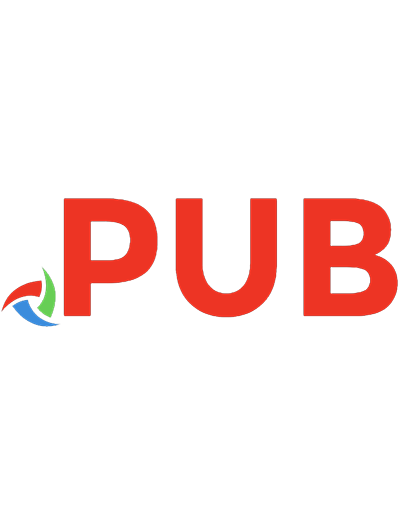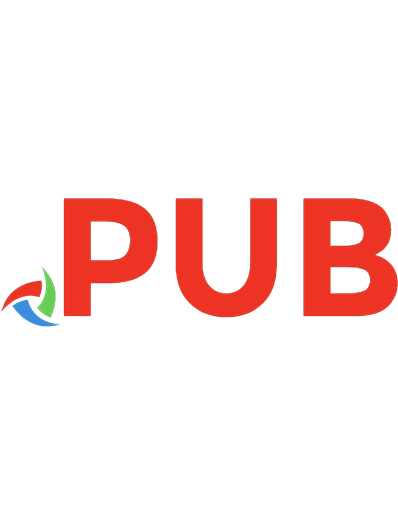New Drawings of the Casa Colorada Text,Chichen Itza, Yucatan
402 127 8MB
English Pages [5]
Polecaj historie
Citation preview
Chichen Itza Resources
New Drawings of the Casa Colorada Text, Chichen Itza, Yucatan Bruce Love The inscriptions of Chichen Itza continue to challenge epigraphers with little consensus in sight regarding many of the texts there. Of course, accurate drawings are an imperative to such efforts, so to this end I am adding a new contribution. In June 2012 I was given the opportunity to do detailed photography with artificial lighting from multiple angles on the glyph band in the Casa Colorada (Structure 3C9 [Ruppert 1952:43]), during which visit I also photographed overview images of the structure itself (Figure 1) and the interior (Figure 2).1 After developing the close-ups of the individual glyph blocks and selecting the ones that showed the most detail, I made prints of uniform size and scale to facilitate drawings, which were traced on media laid directly over the photographs on a light table; therefore the shape of the glyphs and the stone blocks they are carved
on, and the position of the glyphs and stone blocks vis-à-vis each other, are highly accurate; however, working with these photographs it became evident that the visible carved lines had been compromised by the many decades of moisture and calcification coating the stones. It was a great boon to my efforts, then, when Barbara Fash directed me to the thumbnail photographs of the Carnegie Institution casts,2 which showed remarkably fine detail when 1 Permission to photograph was granted by Dr. Peter Schmidt, director of the Proyecto Arqueológico Chichén Itzá. Photography was assisted by INAH staff illustrator Guillermo Couoh. 2 Available online at Peabody Museum – Collections Online, pmem.unix.fas.harvard.edu:8080/peabody/ (quick search Casa Colorada).
Figure 1. The Casa Colorada (Structure 3C9). Photo: Bruce Love. 2015 Mesoweb: www.mesoweb.com/chichen/resources/sub/CasaColorada.pdf.
New Drawings of the Casa Colorada Text
2
Figure 2. The Casa Colorada glyph band in situ. Photo: Bruce Love.
compared to the existing stones today. And so, for each glyph block, as I traced the lines directly over the photograph, I consulted the Peabody Museum thumbnails; I also looked at drawings by Annie Hunter, Herman Beyer, Ruth Krochock, and Alexander Voss (Figure 3). Figure 3 gives the reader a sample of the variation found between drawings of the same glyphs by different researchers. In the vast majority of cases, the differences in renderings are more to do with style, not bearing directly on the readings or the interpretation of the message; but there are some cases (not in Figure 3) where the details in these current drawings do make a difference, or at least clear up some ambiguities, and thus this current contribution, it is hoped, moves the field forward, however modestly. For the current drawings (Figures 4 and 5), the number system follows Annie Hunter in Maudslay (1889-1902:3:Pl. 24). Drawings by Beyer and Krochock were provided by Peter Keeler, drawings by Alexander Voss and links to the Peabody Museum casts were generously provided by Barbara Fash, and drawings by Alexander Voss were also found in Voss and Kremer (2000:Fig. 5) and Boot (2005:Fig. 4.9).
Scale: The text forms a single row of glyphs approximately 16 cms high and 11.45 meters in length!
References Boot, Erik 2005 Continuity and Change in Text and Image at Chichen Itzá, Yucatán, Mexico. CNWS Publications, Leiden. Maudslay, Alfred Percival 1889-1902 Archaeology. 5 vols. Appendix to Biologia Centrali-Americana; or, Contributions to the Knowledge of the Fauna and Flora of Mexico and Central America. R. H. Porter and Dulau, London. Rupert, Karl 1952 Chichen Itza: Architectural Notes and Plans. Publication 595. Carnegie Institution of Washington, Washington D.C. Voss, Alexander W. and H. Juergen Kremer 2000 K’ak’upakal, Hun-pik-tok’ and Kokom: The Political Organization of Chichén Itzá. In The Sacred and Profane: Architecture and Identity in the Maya Lowlands, edited by Pierre Robert Colas, Kai Delvendahl, Marcus Kuhnert, and Annette Schubart, pp. 149-181. Verlag Anton Saurwein, Markt Schwaben.
New Drawings of the Casa Colorada Text
Peabody Museum casts online http://pmem.unix.fas.harvard.edu:8080/peabody/media/view/Objects/371619/502283?t:state:flow=d2e6d851-078e-4887-8507-4c5c7c0ba275
Love photograph, 2012
Love drawing, 2015
Annie Hunter drawing (Maudslay 1889-1902)
Beyer drawing (courtesy Peter Keeler, from Patricia Anderson manuscript)
Krochock drawing (courtesy Peter Keeler, from Ruth Krochock dissertation)
Voss drawing (Voss and Kremer 2000:Fig. 5; Boot 2005:Fig. 4.9)
Figure 3. Comparisons of renderings of glyphs 19–24.
3
New Drawings of the Casa Colorada Text
1
2
7
13
3
9
15
20
25
31
8
14
19
4
5
10
11
16
21
26
32
4
27
33
6
17
22
28
34
12
18
23
24
29
35
Figure 4. The Casa Colorada inscription: glyphs 1–36. Drawings: Bruce Love.
30
36
New Drawings of the Casa Colorada Text
37
38
43
5
39
40
44
49
41
45
50
46
51
55
42
47
52
56
53
57
Figure 4. The Casa Colorada inscription: glyphs 37–57. Drawings: Bruce Love.
48
54










